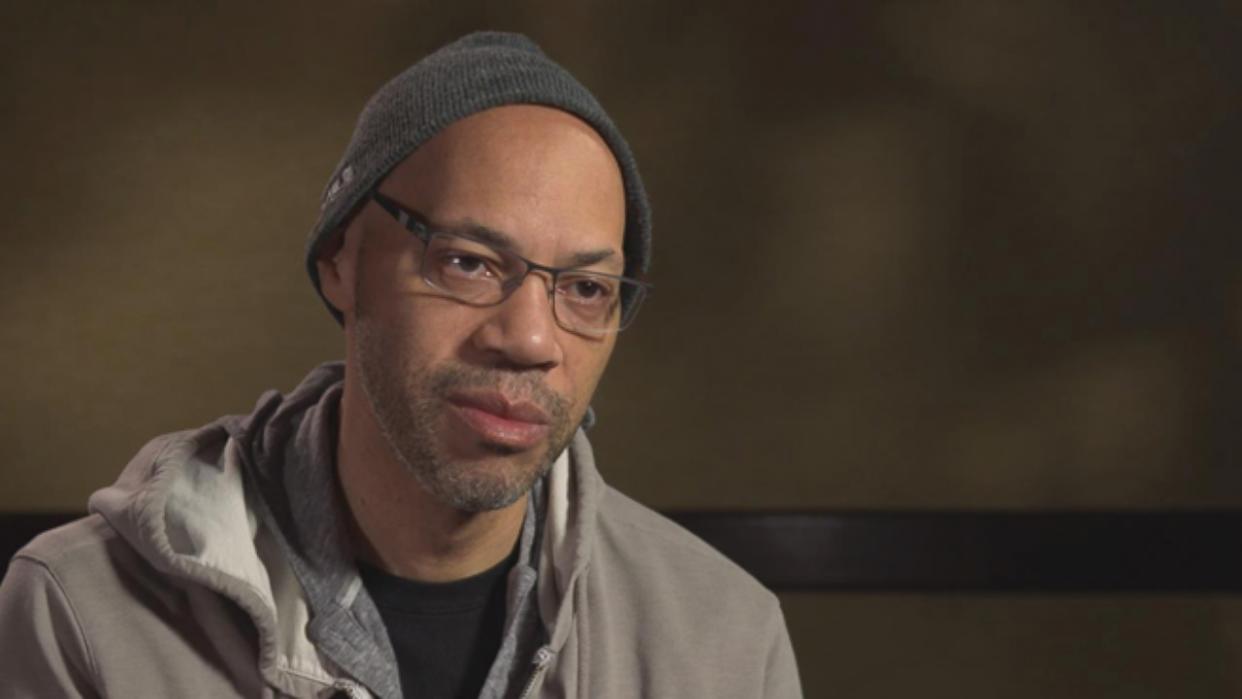 Newsmakers
NewsmakersDirector John Ridley on that Steve McQueen Feud, His New Jimi Hendrix Biopic

Since winning an Oscar for Best Adapted Screenplay for 12 Years a Slave, John Ridley’s schedule has been hectic. He’s been busy shooting American Crime, a pilot for ABC while also promoting the U.S. premiere of his highly anticipated Jimi Hendrix biopic Jimi: All is by My Side at SXSW in Austin.
So it’s understandable the screenwriter turned director has had little time to dwell on his alleged behind-the-scenes feud with 12 Years a Slave director, Steve McQueen which went public once he failed to thank the director during his Academy Award’s acceptance speech.
“I’m not worried about it,” says John Ridley, “what Steve did was potentially monumental and nobody can take that away from him . . . I’ve been a lot of places recently, and all I know is people praise that film like they should and more importantly, talk about Solomon and his story.”
Instead, Ridley is using his time to focus on his latest project, Jimi: All is by My Side, a film set to be released in the United States later this summer.
All is by My Side, is the first film Ridley both wrote and directed and focuses on the year Jimi Hendrix spent in London before he played the historic Monterey Pop Festival and subsequently became one of America’s greatest rock-and-roll icons.
Ridley was drawn to Hendrix’s story in part because “it was a piece of unexplored history,” but also because it gave him the ability to go beyond the stereotypes and laundry list of Hendrix’s greatest hits to explore the inner conflict and character of a man who is credited with inventing new ways to play the electric guitar.
“Most people think of Jimi with the wild hair, the bandana, and clothes. And that’s all real and true, but how did he get that look? How did he get that style? Why did he have it?” questions Ridley. “I want people to connect with him as a person and not just as a rock and roll icon.”
When John Ridley sat down to write All is by My Side, he hadn’t given much thought to who would direct the film. But as his vision continued to grow and evolve, Ridley began to reach the conclusion, “I want to take a chance, I want to direct this.” And of one of his first decisions he faced was casting the role of Jimi Hendrix.
Reflecting on his choice to cast André 3000 from the hip hop duo, Outkast, Ridley says “I thought André Benjamin - he kind of looks like Jimi, maybe he should play the part. And it turned out that everyone and their brother had come after André to play Jimi, so that was not a spark of genius at all.”
And though some might second guess his decision to cast a musician over an established actor to play the film’s lead role, Ridley isn’t expressing any regrets, “looking back there are moments where a number of actors could have played this part and done a really good job at it, but . . . I can’t imagine anybody else in this role expect André.”
André became a devoted student of Hendrix during the lead up to the film’s production; watching hours of recorded interviews given by the singer in order to learn his mannerisms and intonations, taking a month long course so that he could learn how to play a left-handed guitar, and adhering to a strict diet so that he could project the image of an artist who couldn’t afford to spend much money on food in his early years.
Another challenge for the director was how to tell the story of a man known by his music, without actually using a note of the Hendrix’s music. The Hendrix estate has been notoriously protective of the singer’s library, leaving Ridley only one option - all the Hendrix songs in the film are covers.
But Ridley is taking all the challenges and controversies that arise with working in the entertainment business in stride.
When reflecting on the transformative power winning an Oscar can have on a career, Ridley seems grounded by the fact that no matter where his career may take in the future, he’s content with his where he is right now. “I consider myself very fortunate; I’ve worked for a long time . . . I’ve had a lot of supporters,” he says.
If winning an Oscar for 12 Years a Slave changes anything, Ridley is hopeful that the change is for other filmmakers and screenwriters who can use the film’s success as a benchmark for telling stories that they are passionate about. “This is not just black America history,” says Ridley, “this is history for everybody and . . . these stories, they work. They are powerful. There is no reason not to make these stories.”

